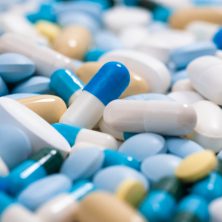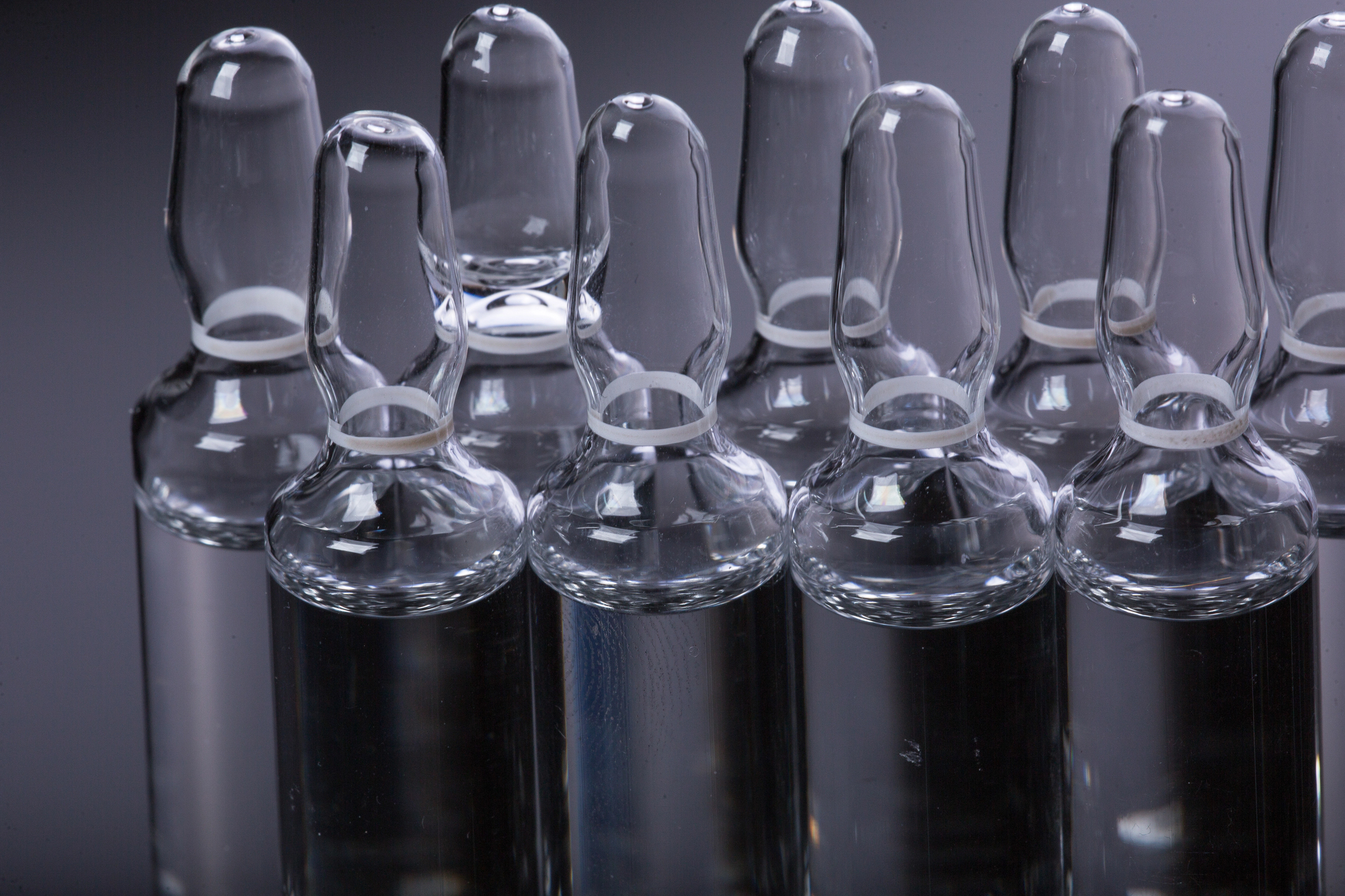Since 2015, Ukrainian medical care has undergone many changes. Subsequently, one and a half years ago, the medical reform started – it started from the primary care. Now there is more choice and responsibility in the new health care system.
The material was created within the framework of the project “Do not Believe Myths” with the support of the International Renaissance Foundation.
More than 28 million Ukrainians have already signed declarations with family doctors, therapists or pediatricians. Polls in May this year show that over 70% of Ukrainians are satisfied with them.
Affordable Medicines, a program of state reimbursement of the cost of some drugs in pharmacies, has also been launched. According to the same polls, nearly three quarters of Ukrainians have heard of it and a third, 33%, rate the program as successful or very successful.
But despite all the changes, there is still a problem in the medical field. So, where does this system “slow down” now and what are the problems that Ukrainians face? VoxCheck collected complaints from patients, doctors and politicians about changes in medicine and tried to figure out what to do with it.
When will the doctors come to the countryside?
One of the problems being thrown at medical reform is the lack of doctors in the countryside. Like, e.g., what did the medical reform solve if family doctors never showed up in remote hospitals? Such comments could often be found under the posts of former Minister of Health Ulyana Suprun.
Indeed, in small towns and villages, there is little or no choice of doctors at all. However, forcing doctors to work there was not the task of medical reform. Pavel Kovtonyuk, still Deputy Minister of Health at the time of the interview, explains that, first of all, medical reform has given communities more autonomy, and they can look for specialists themselves.
“One thing we need to understand is that the community should be responsible for services within its own territory. The government collects taxes to guarantee the receipt, payment for these medical services, but whether or not this medical service is physically within your territory is your responsibility, ”says Pavel Kovtonyuk.
So the area of responsibility say shifted. Communities have to find doctors for themselves. Decentralization allowed them to unite and solve local problems on their own without waiting for permission “from above”.
How does it work in practice?
A successful example is in the Biloziria ATC in Cherkasy region. There were no family doctors in the ATC, so in 2017 apartments were equipped with infrastructure subvention – they were offered for doctors free living. The community also agreed to pay the doctors communal services and pay extra to specialists so that the doctor could receive a competitive salary. The chairman of the Biloziria community Volodymyr Mitsuk told VoxUkraine that there were more people who wanted to work as a doctor in their community than positions available.
“Three years ago, we had no family doctors at all. But we repaired housing for future doctors, wrote job posting, even advertised on television, and were contacted by 8 doctors. We have already chosen among them,” – said the chairman of ATC.
There are now three family doctors working in the community, and community-provided housing – as promised – is free for them. There is also a pediatrician and therapist who also sign declarations with local residents. In total, they serve more than 9,300 residents of ATC. Of course, they say in the community, they still have problems with medical care: there is no car for doctors, and there is not enough equipment in the outpatient clinic. However, they plan to address these issues through the following infrastructure subventions.
In total, while preparing this material, we have counted from the open sources more than dozen successful examples, of how rural communities sought and found physicians.
Has salary grow for all doctors?
No, since the beginning of medical reform, salaries have not increased for all doctors. This has happened for several reasons.
Firstly, the reform so far concerned only the primary care – family doctors, therapists and pediatricians. Those changes will take place for the rest of the specialist in 2020.
Under the “money follows the patient” system, primary care doctors now receive money depending on how many patients have signed declarations with them, with an average of over 12,000 hryvnias. Someone is receiving this money directly from the National Health Service of Ukraine (NHSU) – because they have privately owned medical practice as a Private Entrepreneur. Funds for patients who have signed declaration with doctors in medical institutions, including public utilities, are transferred from the budget to these institutions by the NHSU.
For example, from the beginning of 2019 till September 1st, in less than three quarters, the agency has already transferred almost 12.5 billion hryvnias for medical bills across Ukraine. For comparison, during the two quarters of the medical reform last year, the NHSU paid slightly more than UAH 3.5 billion under contracts with hospitals.
But there is a flip side to the coin – when the money earned simply does not go to the doctor, despite the fact that the NHSU transfers these funds to the hospital that concluded the contract with it. In the spring of 2019, BBC Ukraine journalists found an institution in Kyiv where a doctor with a thousand patients receives salary just over 2 500 UAH.
How did it happened?
BBC reporters spoke with doctors in the Shevchenko district of Kyiv. Several doctors from the area showed them their salary invoise – with all the surcharges and bonuses their income for the month reached only 4-6 thousand hryvnias. The dissatisfied, said in the publication, are threatened to be fired.
However, such salaries are received by doctors, not due but against the medical reform. With the changes in the medical system, clinics have gained autonomy. At present time, none of the state authorities – including the MoH and the NHSU can dictate what and how medical institution should do with their money.
Salaries and their accrual systems should be recorded in a collective agreement, which is drawn up with the participation of the staff and signed by the management and all employees of the institution. The level of salary can be influenced by the doctor’s work experience, his or her category, the number of patients and their age.
So if there are such low salaries for reformed family doctors, then they have signed a collective agreement to receive them. Only doctors’ associations can solve the problem to counteract such coercion and threats together.
“You cannot enter into a contract with a person without that person’s signature. That is, the doctors agreed. To them, too, these changes in psychology, which I can now say something. And to come to the team of the chief doctor and say “listen, the chief doctor, we want to pay such a salary, the procedure of its accrual, otherwise we will go.” Yes, we need to grow up to that,” – explains Pavlo Kovtonyuk.
For the time being, no specific mechanism is being proposed by the MoH for the doctors in order to counteract their local leadership. In the end, each situation is different. Therefore, the solution of how to make such a mechanism work will have to be found in practice.
Why hospitals are closing?
Medical facilities – hospitals and medical and obstetric care units (called FAP in Ukraine) – have actually declined in the country. Politicians have even told on TV shows that this is the fault of the medical reform again.
Yuliya Tymoshenko, 01/07/2019 (1: 01: 25-1: 01: 41)
“This is a consequence of medical reform, because over the last 5 years we have closed – just think about it – 500 medical facilities and 1,633 medical and obstetric care units, they are called FAPs in the countryside.”
So, who’s to blame?
First, the medical reform has been operating for less than two years. Therefore, something that started 5 years ago cannot be its consequence.
Secondly, there have been, indeed, more medical establishments in Ukraine before. In 2013, there were 2.2 thousand hospitals in the country, and outpatient posts (FAPs) – 14.2 thousand. In 2017, their number dropped to 1.7 thousand and 13 thousand respectively. But it is worth remembering that the data for 2017 do not include the occupied territories – Crimea and part of Donbass – where a number of medical institutions remain.
Thirdly, before the start of the “Suprun Reform”, the Parliament adopted a law on health care facilities. He reorganized budget institutions into state-owned enterprises or municipal non-profit enterprises. In doing so, local councils were given the right to manage medical and obscetric units and close them more effectively if they were no longer viable. Previously, funding was allocated to hospital beds, regardless of whether they were used at all. And with the onset of medical reform, the new “money follows the patient” principle, money is allocated only for actually provided medical services. Therefore, keeping a whole medical and obstetric care station with very few patients can really be inappropriate.
How not to close hospitals?
Medical reform stimulates competition among hospitals. They will have more money and, accordingly, institutions with more clients will continue to work – that is, those who will provide better services. In small towns and villages, the closure of medical and obstetric units does not conflict with the opening of family doctor’s offices.
Where is the “insurance medicine”?
How to pay doctors well and to keep hospitals is decided. But how to pay for all of it if there is no compulsory health insurance?
But in reality there is one.
Technically, health insurance is just a way of distributing money in the state. Medical reform implies state-guaranteed medical services, which, essentially, is one of the types of insurance. The contributions to the “insurance fund” in this case are taxes from Ukrainians. Currently, the state health guarantee program covers the entire primary care medicine , and next year it will reach the secondary care. In the future, the state will introduce guaranteed package at all levels of medical services, including inpatient services. For this purpose, there is the National Health Service of Ukraine (NHSU), a national “insurer”, which contracts with healthcare institutions and purchases medical services for Ukrainians.
But what if I want even better service, even more qualified staff or service at a clinic that has not contracted with the NHSU? Here it is necessary to turn to private insurance companies. It should be understood that the existence of a system of state financial guarantees in no way contradicts the possibility of private insurance.
Therefore, the Ministry of Health hopes that active development of private health insurance will begin in Ukraine in 2020. But for this, companies must have clear rules of operation in the market – with autonomous hospitals enterprises, should there be for whom and how to compete, and an electronic healthcare system to control the services rendered. Therefore, in this case, medical reform does not abandon insurance medicine, but on the contrary – creates conditions for it.
MoH does not procure medicine. Is it more expensive now?
Some of the medicines in Ukraine are no longer procured by the Ministry of Health. International organizations such as UNICEF, the United Nations Development Program (UNDP) and Crown Agents do this for the MoH. Such public procurement of medicines started in 2015 under Kvitashvili. During the time of Ulyana Suprun’s work, the list of programs under which international purchases is carried out has been expanded: now they buy medicines virtually for all state programs. In September 2019, Parliament continued international drug procurement for another two years.
Not all medicines in Ukraine are currently purchased by international organizations. Those medical institutions that are financed not from the state budget, but, for example, from a regional or local one, buy medicines on their own.
In general, the format of international procurement can be considered successful for Ukraine. Although Еhe Accounting Chamber report states that corruption risks in procurement are not completely eliminated, the transfer of procurement to international organizations has resulted in savings of around 40% of budgetary funds.
However, there are a few “but”.
Delayed delivery
For international procurement, the MOH collects orders from healthcare institutions and prepares lists of required medicines and terms of reference for their procurement. These documents are passed on to international organizations, and they announce tenders. The international partner contracts with the winner with the best price and supplies the medicines to Ukraine.
However, deliveries of these drugs were delayed at the beginning of cooperation with international suppliers.
Firstly, the Ministry of Health received money for the procurement in the year when the medicines were needed, that is, the time for registration, tendering and delivery was scarce. Secondly, if the supply was large, the manufacturer still needed time to manufacture the drugs in the required volume. The annual delay in the procurement of medicines began immediately from 2014 – when the purchases were failed by the MoH, under the chairmanship of Oleg Musiy, even before the procurement was transferred to international organizations. Delays increased in 2015, when they were unable to transfer their purchases to international organizations for a long time – they contracts were signed only by the end of 2015. Therefore, in 2015-2017, a significant part of centralized medicines purchases were formally for the previous year.
In 2015-2017, the principle of prepayment for medicines was enshrined in agreements with international organizations. The problem has now been resolved: in 2018, the MoH agreed to phased payments for each individual drug procurement program. In addition, the Ministry of Health began using the money saved from previous purchases for the next year.
This procurement system is already up and running, so there ware no delays in deliveries in recent years.
At what cost?
These purchases are really paid services or Ukraine. International partners receive approximately 5% of the total procurement value for organizing the tender and finding the best price offer for Ukraine on the market.
5% of the amount of purchases is a lot of money, but the work of an international organization saves the Ukrainian budget more money. For example, in 2014, according to the Bulletin of the Government Procurement, the antibiotic Moxifloxacin, bought by MoH for $ 1.71 per tablet, and two years later, UNDP was able to purchase to this drug for Ukraine for $ 0.53 per tablet, which is almost three times cheaper. In other words, international organisation saved $ 330,000 on one purchase alone compared to 2014 prices
And the drug Imatinib (400 mg) in the same period was purchased by UNDP for almost $ 1.4 for Ukraine, while the price for MOH previously for $ 96.5. That is, on this drug the overpayment was higher than 200 times.
The savings here are not only financial but also human resources. Previously, the Ministry of Health had over 60 procurement working groups, and now international organizations are involved in this process.
By the way, Moldova has also adopted the practice of international procurement.
Since 2017, the Ministry of Health Ministry of Health, Labour and Social Protection of Republic of Moldova has decided to start purchasing medicines for the state through UNDP. Therefore, Ukraine is not the only country that uses such international services.
However, the involvement of international organizations is a temporary solution, which the MoH has repeatedly stated. And last year the Ministry of Health registered a new state-owned enterprise – Medical Procurement of Ukraine. After the test regime, it will become a centralized procurement organization that will take over the functions of international organizations.
Conclusion
The transformation of Ukrainian medicine into an innovative, flexible and human-centric system is progressing slowly. It is also the fault of the members of the old rigid corruption schemes, the frequent disinformation about reforms, and problems with medical education in the country, that have just begun to address.
There were also mistakes that were only noticeable in the process itself. For example, the delay in international drug procurement in the first year of innovation or the lack of doctors in the countryside, which was particularly acute when both the doctor and the patient had a choice.
Is this normal? Of course, one would like things to change for the better quickly and painlessly. Unfortunately, at the implementation stage, there can always be difficulties that cannot be avoided but that can be overcome in the process of working under the new rules.
If there are so many complains about medical reforms, so will it be possible to cancel it? Technically, yes. After all, all these changes – the work of family doctors, available medicines, international purchases – are regulated by law, which means that they can be canceled or changed by a simple majority of parliament.
But is it worth doing?
First of all, it should be remembered that the laws governing system changes are not the solution to all medical problems in the country. It is only an effective tool, but it sets the rules of the game. Much depends on how these laws are enforced.
Second, the abolition of medical reform will now only cause more chaos. The positive changes that have already taken place will stop, but it will no be possible to return to the old system, which had not worked effectively even before the reform.
Therefore, there is only one way to change healthcare in the country: to reform further, to correct mistakes in the process and to engage in medical education – so that every Ukrainian understands what the ultimate goal of medical reform is.
Attention
The author doesn`t work for, consult to, own shares in or receive funding from any company or organization that would benefit from this article, and have no relevant affiliations




